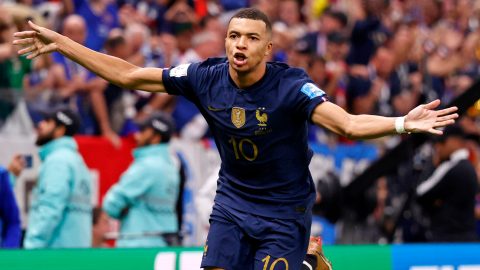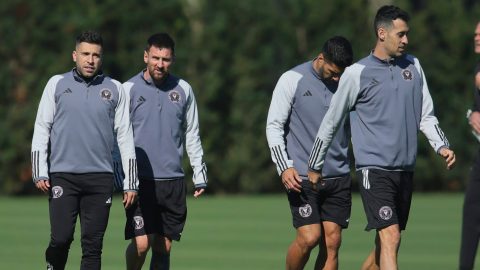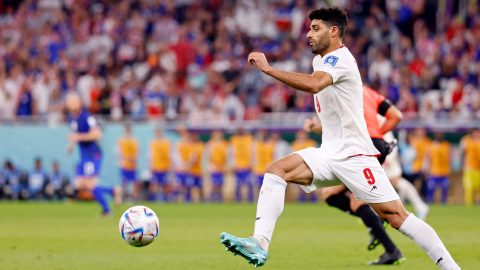 Like Rome, tiki-taka wasn’t built in a day or two. Tiki-taka won’t fall in that short time span either.
Like Rome, tiki-taka wasn’t built in a day or two. Tiki-taka won’t fall in that short time span either.
Bayern Munich hammered FC Barcelona in both legs of their UEFA Champions League semifinal, winning by an aggregate score of 7-0. The scoreline is a fair reflection of the manner in which the German club dominated its Spanish opponent over the span of two games in the spring of 2013.
The lopsided result spawned reactionary headlines and stories proclaiming a “changing of the guard” at the top of the world soccer pyramid and the “end of an era” for Barcelona and its team of champions.
While the “changing of the guard” theory has merit, Bayern’s (and Borussia Dortmund‘s) results and performances over the next 18-24 months will either prove or refute that idea. The stunning semifinal result only makes it clear that Bayern is better than Barcelona at this moment in time. Power at the apex of European club soccer has shifted from Spain to Germany, but time will tell if it is a temporary (or even momentary) switch.
This piece isn’t about a power shift. It’s about Barcelona’s decline or perceptions thereof. While the Bayern machine overran Barcelona for 180 minutes, there are two essential points to keep in mind. First, this Bayern Munich team is considered the greatest in the club’s illustrious history (winning the Champions League will clinch that title), and it is peaking at the right moment. Second, Barcelona has been weakened by a series misfortunes that have recently caused both form and results to slip. When these two factors converged in Munich and again in Barcelona, there was only going to be one outcome.
Barcelona faced Bayern with only one established first-team central defender. Gerard Pique lined up next to 22-year-old Marc Bartara, who has played five full league games in his career. To make matters worse, a pelvic injury hobbled holding midfielder Sergio Busquets in the first leg. He didn’t appear in the second. Those absences were the least of Barcelona’ s worries, as superstar forward Lionel Messi was mortalized by a hamstring injury in the first leg. He was an unused substitute in the return leg.
Barcelona happened to face one of the great teams in recent history without key figures, and one shouldn’t expect that to be a regular occurrence in the future. Barcelona could have overcome these absences with better squad management or more effective transfer activity. Club officials should correct these man-made errors this summer.
While many predicted Barcelona’s defensive struggles, no one could have anticipated that head coach Tito Vilanova would miss a large and ultimately decisive portion of the season. In late December, Vilanova suffered a relapse of throat cancer which had struck him in 2011. Emergency surgery and subsequent treatment effectively kept him off the sidelines (and out of the dressing room) until late March.
Barcelona had reached rarefied heights in the months leading up to Vilanova’s relapse. It had the greatest first half of a season in La Liga history, picking up 55 if a possible 57 points and scoring 64 goals in the first 19 games of the 2012-13 campaign. The slick passing and hungry defensive pressing that has come to define Barcelona’s era of dominance was on full display last fall. Many were asking aloud if Vilanova’s Barcelona was better than his predecessor Pep Guardiola‘s, which had won 14 trophies in the previous four seasons.
Exactly what effect Vilanova’s absence had on Barcelona’s players is hard to quantify. Throughout the winter, club officials assured fans that all was well with Jordi Roura (Vilanova’s top assistant) leading the way and that Vilanova would return in due time. Barcelona initially responded well, but results started to suffer after Vilanova went New York City for more treatment in late January.
AC Milan gave Barcelona a genuine scare in the Champions League round-of-16, as did PSG in the quarterfinal. Closer to home, Real Madrid eliminated Barcelona from the Copa del Rey (Spanish Cup) on Feb. 26 and won the latest installment of “El Clasico” four days later. Madrid, Milan and PSG weakened the air of invincibility that had surrounded Barca in February, March and early April. Bayern Munich swept away whatever remained in recent weeks.
In March, Messi said losing Vilanova’s thoughtful and determined presence was indeed detrimental to Barcelona’s pursuit of glory.
“Nowadays the Coach is really important,” Football Espana reports he told TVC Sports. “Since Tito hasn’t been here we’ve really noticed it. We respect Jordi Routa because he’s our stand-in coach and he’s trying to help us win everything we can. But our boss was Tito and it was a blow when he went.”
Vilanova recovered in time to guide Barcelona against Bayern Munich, but any damage his three-month absence had been done by then. Barcelona is a close-knit group, and Vilanova’s relapse surely took an emotional toll on the players over the course of those uncertain weeks and months.
While Barcelona’s difficult winter and spring won’t spell the end of this cycle, the days when it could turn up and sweep all opposition aside are over. Chelsea (last season), Real Madrid and Bayern Munich have shown that a physical approach, combined with tactical discipline and ruthlessness in front of goal is the way to beat Barcelona’s and its unique style of play, known simply as “tiki-taka.”
Barcelona will reportedly shop for an experienced central defender this summer. Mats Hummels, Vincent Kompany and Thomas Vermaelen have been linked with the club in recent months. Should Barcelona sign one of those three, a goalkeeper to replace Victor Valdes and a top striker to complement Messi, it can spend the entirety of next season perfecting a “plan B” to combat their opponents’ blueprint for victory.
Barcelona reached the Champions League semifinal for a record sixth-straight year in 2012-13, and there’s a good chance it will make it seven next season. There are too many good players — leaders, champions and legends — at Camp Nou to think that this cycle will turn to dust after this emphatic defeat. When Barcelona truly declines, it will do so gradually over the course of seasons as many great teams have seen. Barcelona is not a team in need of revolution or even forced evolution. It needs to freshen up in the summer months and prepare for yet another campaign in search of trophies at home and abroad.
Have a question for Marcus Kwesi O’Mard? Send it to him via Twitter at @NESNsoccer or @mkomard, his Facebook page or NESN Soccer’s Facebook page or send it here. He will pick a few questions to answer every week for his mailbag.



